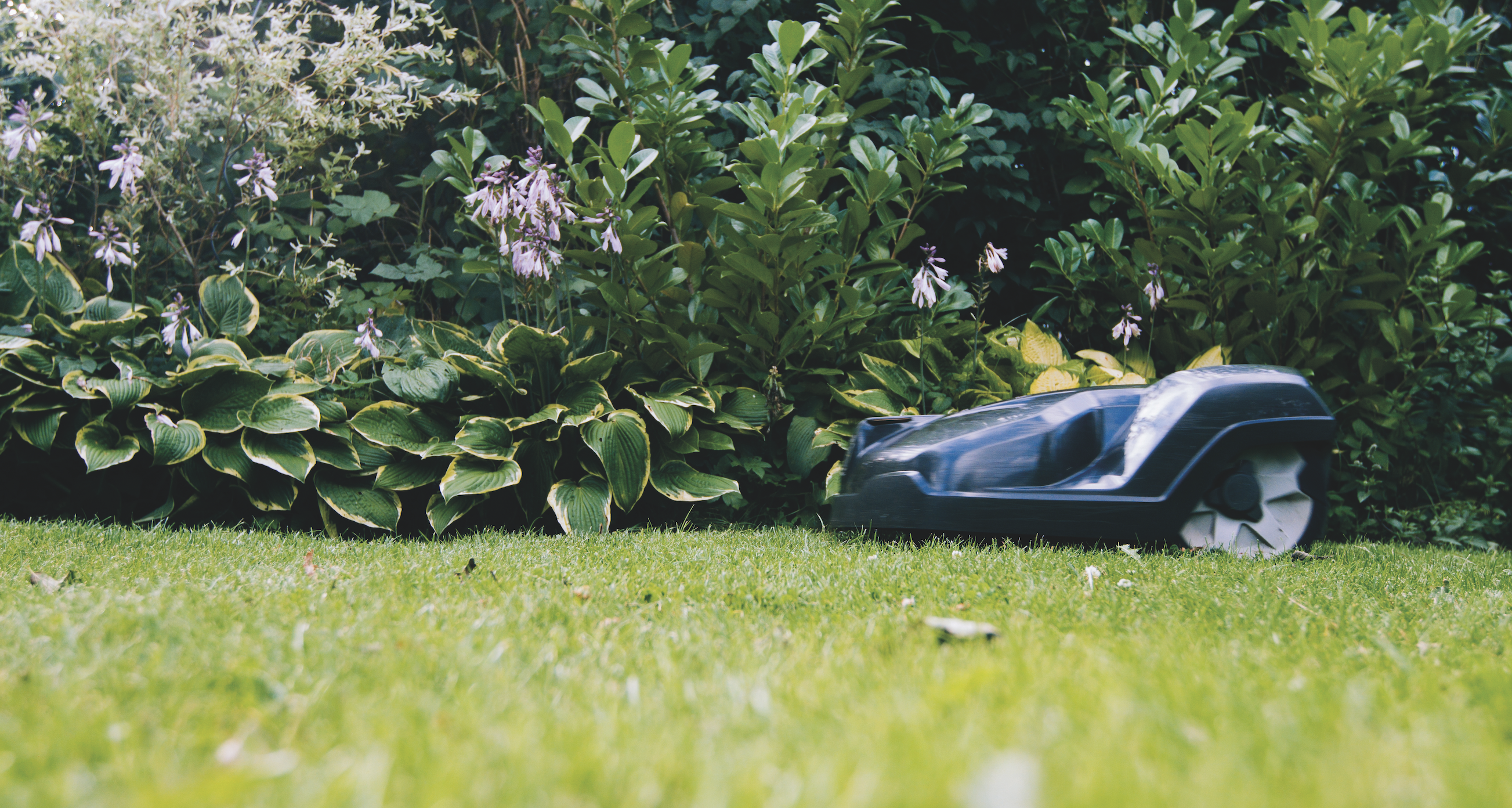Joe Wadkins Explains How Synthetic Turf Has Evolved Over the Years
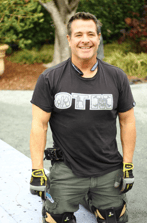 The evolution of synthetic turf has created a billion-dollar Industry. Since the late 1950’s, synthetic turf, also known as artificial grass, has become “the” hot item in the landscape industry. Manufacturers have created better and stronger materials that feel and look like real grass, and thanks to the many uses and services, architects, designers, and builders can incorporate synthetic turf into their portfolio.
The evolution of synthetic turf has created a billion-dollar Industry. Since the late 1950’s, synthetic turf, also known as artificial grass, has become “the” hot item in the landscape industry. Manufacturers have created better and stronger materials that feel and look like real grass, and thanks to the many uses and services, architects, designers, and builders can incorporate synthetic turf into their portfolio.
These are many of the revolutionary improvements made through first, second, and third generation turf systems.
Improved Synthetic fiber treatment
UV inhibitors and complex ingredients combat wear and tear and are environmentally safe.
Development of Fiber shapes and colors
Tan “Thatch” or “dead grass yarn” mixed with green grass colors simulate natural soil and have become homeowner’s favorite for their landscape.
Healthier Infill Granules
Are now coated and infused with anti-microbial protection to help prevent the growth of bacteria, mold, and mildew.
Play areas are using organics for infill like walnut, cork, pine, and coconut to lower surface temperatures. Clinoptilolite, aka “Zeolite”, a natural volcanic mineral is being used as a “top-dressing” infill to combat odor from pet urine. Decades ago, media blast, coal slag, and raw silica was the only infill available for ballast and keeping the fibers vertical.
Water Saving Features
We can talk all day about the evolution of fiber, how many uses, or how beautiful synthetic turf is, but the “wow” factor is how it saves tremendous amounts of water. Synthetic turf has become a crucial component in saving water for many states. Several lakes and rivers are at historical record lows. Boat docks are being lowered every week due to the rapid depletion of water that feeds many cities. States have created mandates forcing water restrictions and compensating owners with cash up to $3.00 per sq. ft. by removing natural grass and placing with landscape synthetic turf. Just think of all the pesticides, insecticides, and other poisonous chemicals that are not needed when placing synthetic turf. That alone is crucial to the environment.
The versatility of synthetic turf has allowed manufacturers to design, create, and manufacture products for landscape, golf, bocce, lawn-bowling, tennis, corn-hole, cross-fit, pet facilities, rooftops, balconies, mezzanines, and much more. The creativity synthetic turf offers allows endless hours of sports and activities to be played all year around.
Installing synthetic turf is not a complex process. It is a game changer. It is a savior in many ways. It saves water. It saves money. It saves that yard that can never stay green. But most importantly? It saves valuable time that can be spent on more important things, like family and friends.
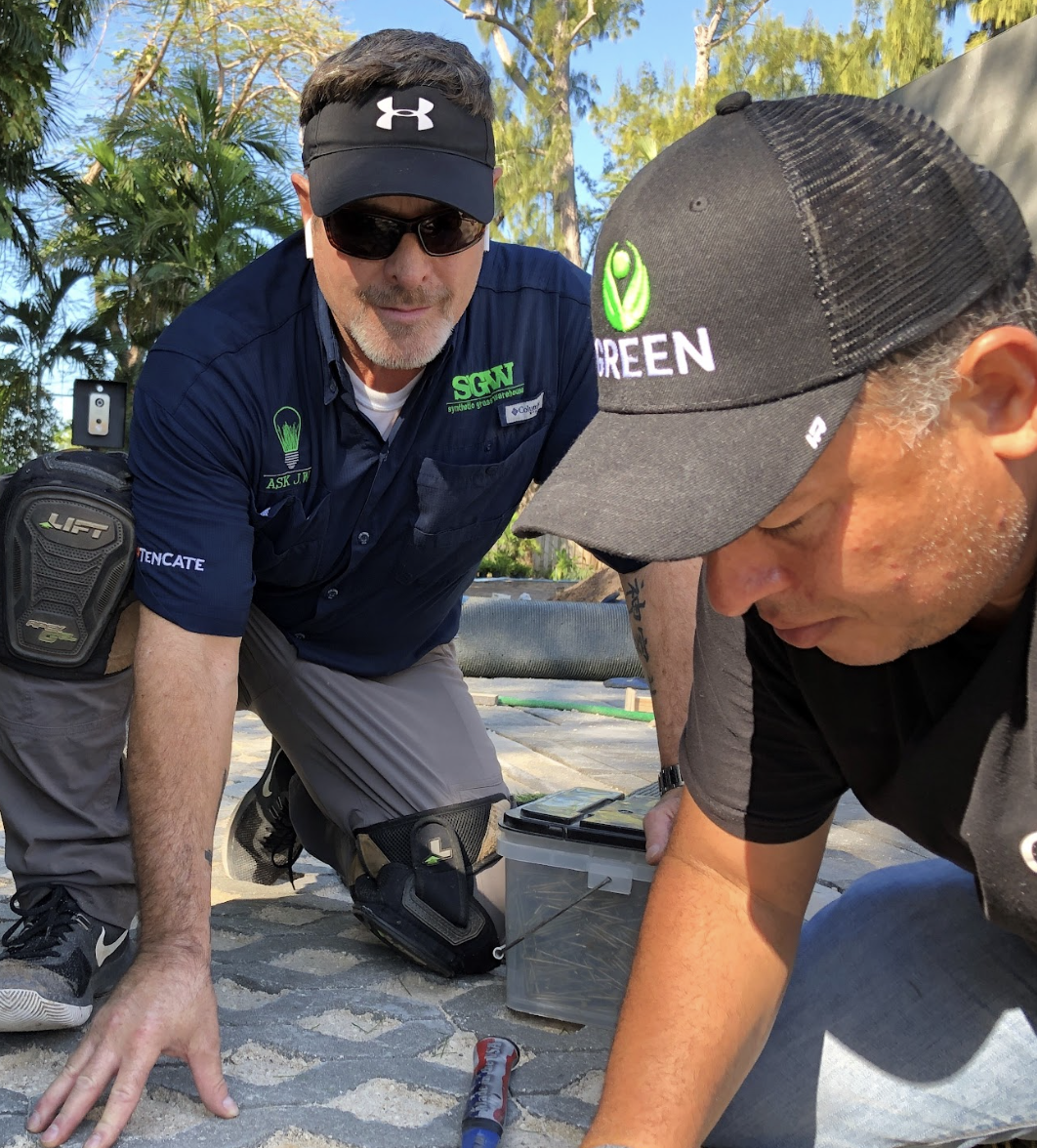
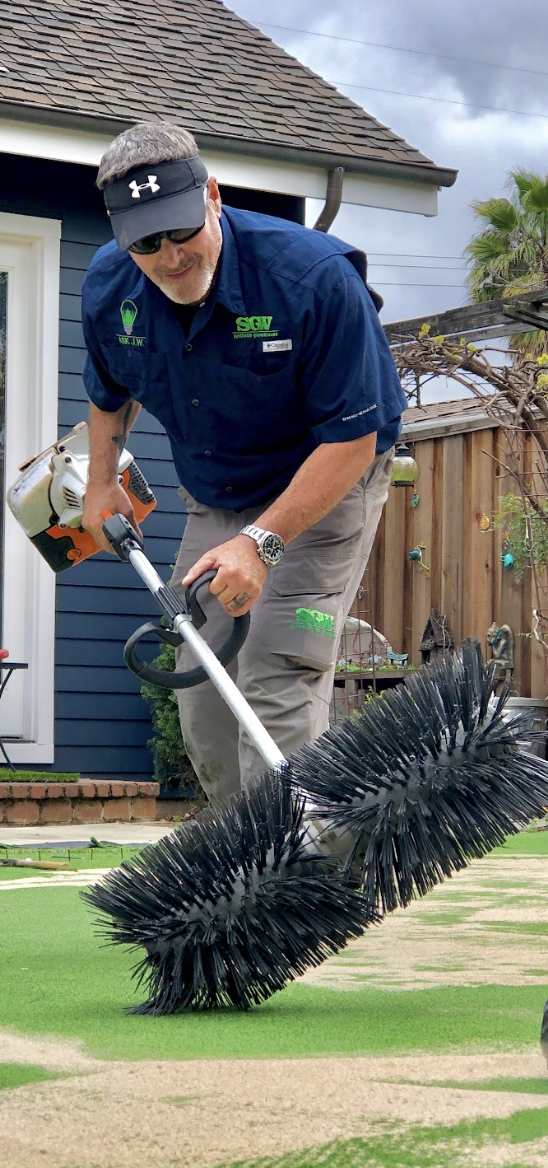
If you have any questions or need to schedule a training, please give me a shout.
ABOUT
Joe Wadkins, aka “Ask JW” has become one of the leading synthetic turf experts across the globe. With decades of experience, he is highly sought after to consult, design, and train all aspects in synthetic turf including football, soccer, and baseball fields. JW is an Inventor with several patents for synthetic turf tools. He is the proud author of “ASK JW”, a monthly online article that helps contractors build their businesses by offering training, education, and technical support in the most recognized problems in the Synthetic Turf Industry today.
Phone: 888-846-3598
Email: jw@askjw.com
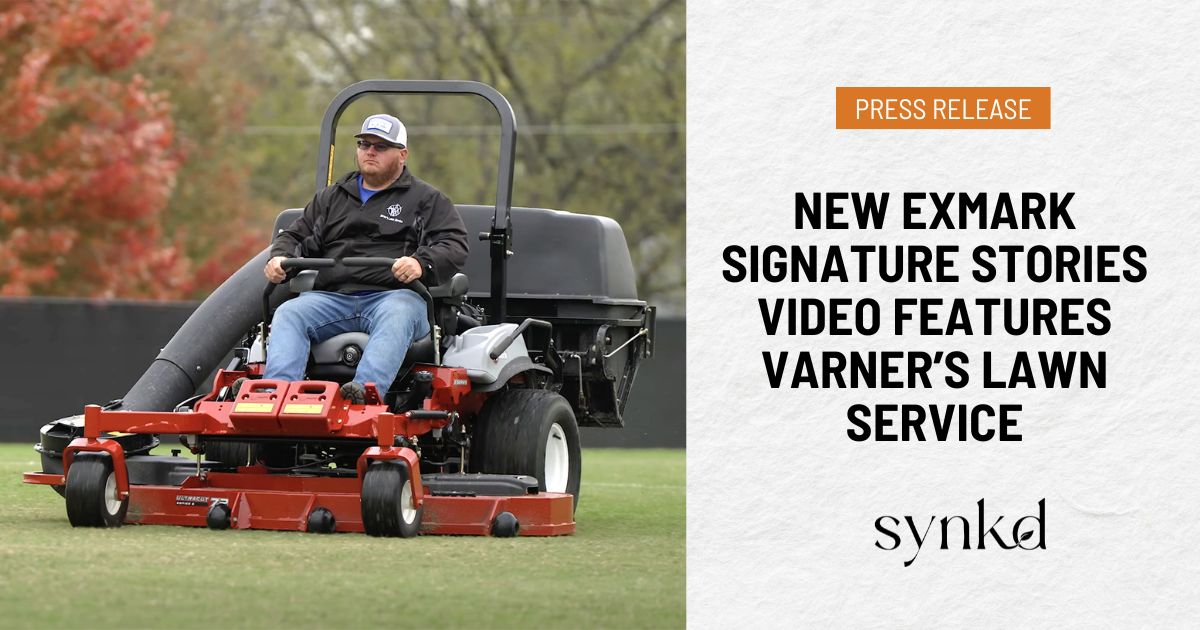
New Exmark Signature Stories Video Features Varner’s Lawn Service
Midway, Kentucky-Based Lawn Care Service Focuses on Increasing Efficiency & Service Quality
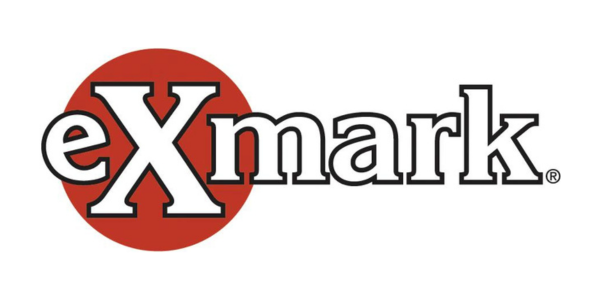
Save Thousands on Exmark Stand-On and Zero-Turn Mowers
BEATRICE, Neb. —June 14, 2023— With the season hitting its stride, Exmark is making it easier than ever to upgrade to the company’s latest stand-on...
.png?width=541&height=218&name=synkd%20logo%20w%20tagline%20(2).png)
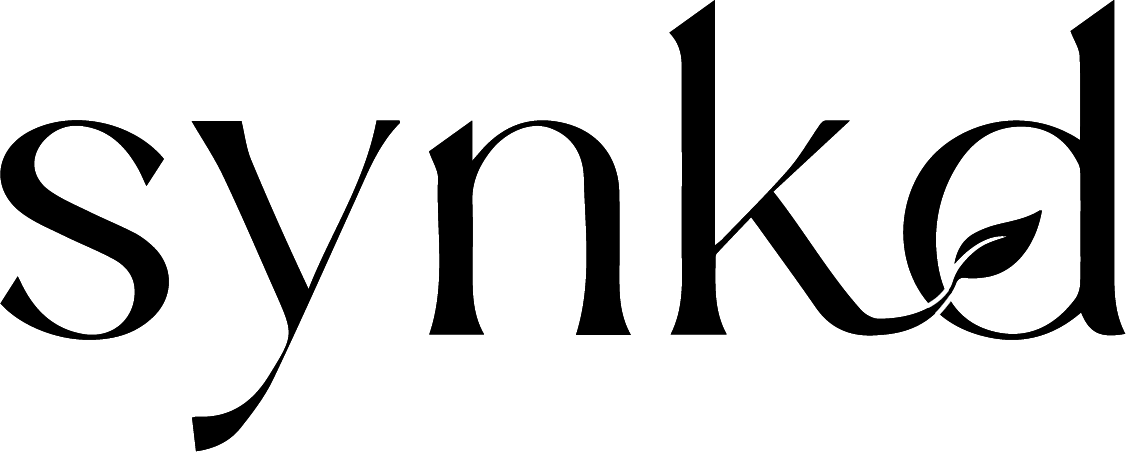


 Mary Kate Carson
Mary Kate Carson
